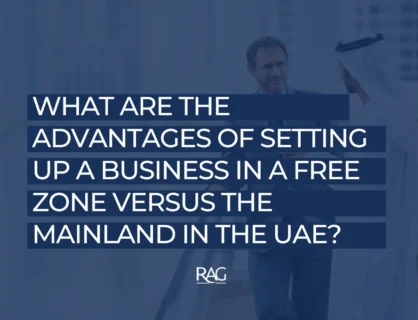How to craft a bulletproof business continuity plan in Dubai in 2025
Have you ever wondered what your business would do if everything suddenly stopped? What if an unexpected crisis or disruption hit and threw you off track? How would your business respond, and more importantly, how would you survive and even thrive in the face of it?
In today’s fast-paced world, having a solid business continuity plan (BCP) is no longer just a precaution; it’s a necessity. Whether you’re a small startup or an established company in Dubai, crafting a comprehensive continuity plan is key to ensuring your operations stay intact, no matter the challenge. From unexpected economic shifts to natural disasters or unforeseen supply chain disruptions, a bulletproof business continuity plan ensures you don’t just weather the storm but emerge even stronger.
Let’s walk through how to create a continuity plan that keeps your business running smoothly and makes sure you’re prepared for whatever comes next in 2025.
1. Understand the risks and assess your vulnerabilities
The first step to a bulletproof business continuity plan is understanding the risks. The risks your business faces will differ depending on your industry, size, and other factors. In a city like Dubai, the business landscape is dynamic, and risks could range from cybersecurity threats to supply chain disruptions or even shifts in global market conditions.
You need to conduct a risk assessment, but don’t just list them and move on. Dive deeper. What is the likelihood of each risk happening, and what would its impact be on your business? Some risks might seem unlikely, but their potential damage could be catastrophic. Others may be more frequent but manageable with proper planning.
Start by categorizing risks such as:
- External risks like economic downturns, natural disasters, and geopolitical instability.
- Internal risks such as system failures, human error, or a sudden workforce shortage.
- Technological risks like data breaches, cyberattacks, or the failure of critical software.
By fully understanding what might affect your business, you’ll be able to address them in your BCP effectively.
2. Identify critical business functions and prioritize them
Next, figure out which parts of your business are the most critical. These are the functions that must be up and running at all times, even in the event of a crisis. If a disaster occurs, the goal is not to shut everything down but to maintain these critical functions with as little disruption as possible.
Ask yourself questions like:
- What functions are essential for keeping the business operational?
- What processes, people, or systems are indispensable to day-to-day operations?
- What services or products do customers rely on most?
For instance, if you’re running an e-commerce business in Dubai, your online store, payment processing systems, and supply chain might be the most critical. On the other hand, if you’re a service-based business, your client communication tools and team coordination could be key to ensuring uninterrupted service.
Prioritize these critical areas so that you can focus your continuity efforts on protecting them first.
3. Create backup plans for everything
Now that you’ve identified your critical business functions, the next step is to prepare a plan to ensure they keep running no matter what. Having contingency plans for your key functions and systems is vital.
Here’s how you can approach it:
- Data backup: Make sure all essential business data is backed up regularly and stored in secure, offsite locations (preferably in the cloud). This will protect you from potential data loss in the event of a system failure, cyberattack, or even a natural disaster.
- Alternative suppliers: Build relationships with secondary suppliers who can step in if your primary supplier fails or faces disruption. This is particularly important for businesses that rely on imports, as shipping disruptions or customs delays can severely impact operations.
- Communication systems: Make sure you have multiple ways to communicate with employees, clients, and suppliers. This could be a combination of phone lines, email, and instant messaging platforms, as well as a crisis communication plan in place for emergencies.
- Employee safety: In any crisis, ensuring the safety of your employees is paramount. Prepare for remote work scenarios, especially if your employees are located across Dubai or beyond, and ensure they have the tools needed to work from home efficiently.
4. Test your continuity plan regularly
A business continuity plan is only useful if it works in real-world situations. To ensure your plan is effective, conduct regular testing. Simulate different crisis scenarios—whether a natural disaster, a cyberattack, or a supply chain disruption—and evaluate how your team responds.
Testing will help you identify any gaps in your plan and give your team the chance to practice how to execute it efficiently. It’s not enough to just draft a plan and put it on a shelf. Make sure your team is comfortable with it, and everyone knows what to do when the unexpected happens.
5. Involve the right people in the process
Creating a business continuity plan is not a one-person job. The involvement of key stakeholders from different departments within your company is essential. This includes:
- Leadership team: They should drive the planning process and ensure that all departments are aligned.
- IT team: Since most businesses rely on technology, your IT team must be part of the plan to ensure system recovery and data security.
- Operations team: They need to understand how to keep operations running in the event of a disruption.
- HR: Ensuring the safety and well-being of your employees should be a top priority during a crisis, so HR must be involved in the process.
By collaborating with these departments, you’ll create a plan that is more realistic and well-rounded.
6. Plan for financial continuity
Financial stability is crucial for your business’s survival during a crisis. Plan ahead to ensure that your cash flow doesn’t take a hit. You may want to establish an emergency fund that can cover essential expenses if your business faces a downturn.
Additionally, consider diversifying your revenue streams. If your business is overly reliant on one customer or market, you’re vulnerable if that source dries up. By diversifying, you reduce your financial risks and can keep your business afloat even when things go south.
7. Maintain a crisis communication strategy
Effective communication is the backbone of any successful business continuity plan. Whether it’s informing employees, customers, or suppliers about changes, disruptions, or updates, your communication needs to be clear, concise, and timely.
Make sure your business has a crisis communication strategy in place, with predefined messages and channels for each type of communication. Whether it’s through email, social media, or text, establish clear guidelines on how you’ll communicate during a crisis to prevent confusion and chaos.
8. Learn from past disruptions
Every crisis is a learning opportunity. After each disruption, take the time to evaluate your response. What worked well? What didn’t? Use these insights to refine your business continuity plan, making it stronger and more resilient for the future.
This continuous improvement process ensures that your BCP evolves alongside your business and the risks it faces. Don’t just rely on past solutions; constantly improve your plan based on lessons learned and emerging threats.
Conclusion
Business continuity planning is one of the most critical aspects of safeguarding your business against disruptions. Whether it’s a supply chain issue, a cyberattack, or a sudden market shift, having a solid plan in place ensures your business can continue to function, no matter what happens.
In Dubai, where the business environment is constantly evolving, being proactive about your continuity plan is even more essential. By assessing risks, identifying critical functions, and building a comprehensive plan with multiple backup strategies, your business will be better prepared for the unexpected.
At RAG, we help businesses with market research that gives you the insights you need to truly understand what it takes to grow your business in Dubai. By understanding the various scenarios your business might face and how it operates in the UAE, we can help you navigate challenges and create strategies that work. Make sure you’re not just prepared but ready to thrive in any situation.
Blogs
Warning: Trying to access array offset on false in /home/u330505848/domains/ragroup.ae/public_html/wp-content/themes/rag-uae/single.php on line 77

Why RAG Is Redefining the Co-Working Space in Dubai for Modern Professionals?

How to Create a Bakery Business Plan in the UAE in 2025

Building a Lean Business Plan That Actually Works in UAE

How to Start Your Consulting Business in Dubai?

What Are the Advantages of Setting Up a Business in a Free Zone Versus the Mainland in the UAE?

Common Pitfalls to Avoid When Setting Up a Business in the UAE

How to Identify Your Perfect Niche and Stand Out from the Competition in 2025 in Dubai



